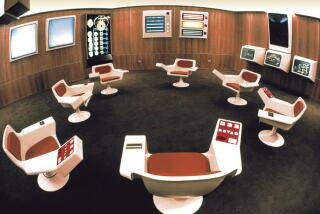Wrong Means in Internet Plan
- Share via
In 1908, Henry Ford introduced the modern automotive assembly line, helping launch the Industrial Age. Last week, his great-grandson, Ford Chairman Bill Ford, called the Internet the “Information Age equivalent” of the assembly line and announced a striking plan to offer all of his 350,000 employees a computer and Internet access for $5 a month. In addition, Delta Airlines has announced a similar program.
The programs will help Ford and Delta’s employees, mostly middle-class, develop their skills, but they also underscore the need to ensure that lower-income Americans are afforded similar opportunities. Last week, President Clinton proposed spending nearly $2.4 billion toward that end.
Some claim that the so-called “digital divide” is disappearing because of the declining costs of personal computers and Internet access. But a recent Commerce Department study shows that urban households with incomes of more than $75,000 are more than 20 times as likely to have home Internet access as rural households at the lowest income levels. And the divide could widen because of subtler costs. One example: Software is increasingly written so it will not work on older computers, forcing frequent hardware upgrades.
Clinton’s plan would extend $2.4 billion in tax incentives and grants to companies that loan or donate computers to public schools and other institutions serving the poor. The impulse behind the plan is a good one, but there are some ways in which it could backfire. In the late 1990s, the same sort of private-public collaboration led some school districts to acquire computers that were unaffordable and of doubtful benefit. In 1997, for example, the impoverished Earlimart School District in the Central Valley, urged on by some donations from manufacturers, bought laptops for every student without much idea of how to use them. The chief result was a $2.9-million debt that will take years to pay off.
Congress, rather than simply rubber-stamping Clinton’s plan, should improve it with safeguards against abuse, like a requirement that schools and companies develop a viable plan to use the computers for a specific educational goal, like boosting math scores. As Bill Ford and other private-sector leaders have noted, computers are useful tools. But only when applied toward meaningful ends.
More to Read
Inside the business of entertainment
The Wide Shot brings you news, analysis and insights on everything from streaming wars to production — and what it all means for the future.
You may occasionally receive promotional content from the Los Angeles Times.









